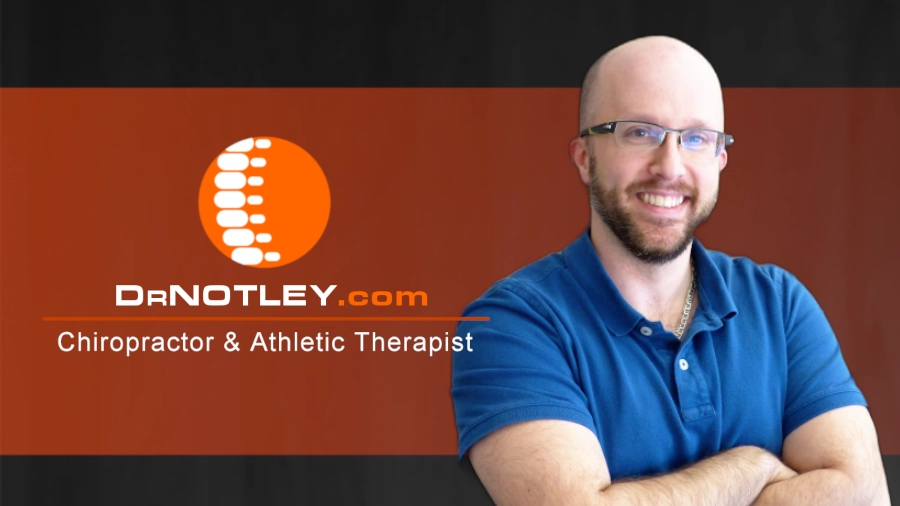I was asked recently to write an article for the Manitoba Running Association on Active Release Techniques (ART) a technique that I have been using, since I was a Chiropractic Student, on many of my athletes and non-athletes. There are not many practitioners of ART in Winnipeg but thankfully I work with others (at Gelley Chiropractic Office and Precision Movement and Therapies) who have been using it for even longer than I have.
Here is the article I wrote:
Active Release Techniques and the Treatment of Running Injuries
By Dr. Christopher Notley
Running injuries can be caused by many different factors, such as, poor running mechanics, a rapid build up of mileage, muscle imbalances, poor foot wear, or running through the pain. Even with good technique, appropriate training plan and proper footwear runners are still going to be affected by repetitive micro-trauma resulting in repetitive strain injuries
Repetitive strain injuries are often seen in runners. Repetitive strain injuries are the result of several factors that result in an increased insult on the tissues. Four factors increase the insult on tissues.
- Increased number of repetitions
- Increased force applied during activity
- Shorter movements
- Less time between repetitions
For example, consider your knees and hips as your run. They flex and extend thousands of times throughout a long run. The muscles have to absorb two to three times your body weight each time you land. There is also very little rest between strides. It goes without saying, your muscles, ligaments and tendons are bound to experience micro trauma causing injury.
The result of repetitive strain injuries is the development of densifications. Densifications can also be a result from acute injuries (muscle strains, ligament sprains) and constant pressure/tension injuries (constant muscle tension from poor posture). Areas of densifications results in restricted range of motion, a reduction in circulation, increase in muscle tension, friction and it may even affect nerve function all of which can affect your performance.
If not addressed this can result in a cumulative injury cycle where injury causes further irritation causing further injury. To break the cycle these densifications need to be addressed. Any chronic injury that keeps coming back after a lay off or doesn’t appear to be improving even after running and joint biomechanics have been taken care of may have densifications that need to be addressed. The technique that I find has the most success for my runners and many of my other patients is Active Release Techniques (ART®).
What is Active Release Techniques?
ART® was created by an aeronautical engineer, chiropractor and avid triathalon competitor, Dr Micheal Leahy. ART® is a fixture at all Ironman Triathalons and has even been accepted as treatment option for athletes by some sports medicine doctors in Winnipeg. It is a hands on system of treating and managing soft tissue injuries. Soft tissues include muscles, ligaments, tendons, and nerves. The ART® provider uses this system to help examine, diagnose and treat myofascial (muscle and fascia) pain and adhesions/scar tissue between and within these soft tissues.
ART® is different from other forms of soft tissue therapy because it incorporates the best of other forms of treatment, movement, stretching and pressure points. By applying appropriate tension to the specific area of injury the doctor or the runner takes the tissues actively through a specific direction of motion to help soften, stretch or breakdown the scar tissue.
Often patients will say, “It hurts so good”. They are also pleased to have their injury resolve or significantly improve with only 6 to 9 visits. Some only require one to three visits.
All fully certified ART® providers learn over 300 protocols. All providers must continue to maintain their certification each year by attending seminars. This ensures the public that quality of the application of the technique can be maintained. If someone is claiming they provide ART® contact the Active Release Techniques’ offices through their website (www.ActiveRelease.com). Not all certified providers are listed on their website.
What injuries can benefit from ART®
There are numerous conditions that have been successfully treated with ART®. For the runners I treat I have had success with hips flexor strains, groin strains, piriformis syndrome, Iliotibial band friction syndrome, shin splints, Achilles’ tendonitis, and plantar fasciitis.
If you have an injury that just doesn’t seem to be getting better no matter what you try to do ART® may be the technique for you.
If you have any questions regarding your injury or about ART® or any of the other techniques that I provide (Acupuncture, Athletic Therapy or Chiropractic) feel free to contact me at info@drnotley.com.
Dr. Notley is a Chiropractor, Athletic Therapist, Strength and Conditioning Specialist as well as an ART® provider and is certified to perform Acupuncture. He works at Gelley Chiropractic in St. Vital and at Downtown Chiropractic Centre. Check out his website at www.DrNotley.com.
Originally posted on May 17, 2022 @ 4:40 pm
